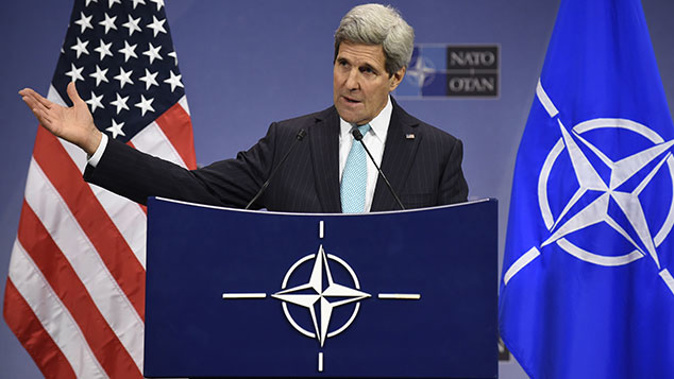
NATO "poses no threat to Russia," says a spokeswoman for the military alliance in response to Russia's adopting of a new military doctrine, which lists NATO and US defence systems among the country's main security risks.
"Any steps taken by NATO to ensure the security of its members are clearly defensive in nature, proportionate and in compliance with international law," siad NATO spokeswoman Oana Lungescu said on Friday.
"In fact, it is Russia's actions, including currently in Ukraine, which are breaking international law and undermining European security," she added.
"NATO will continue to seek a constructive relationship with Russia," Lungescu says, adding, "but that is only possible with a Russia that abides by international law and principles - including the right of nations to choose their future freely."
The documentation of Russia's new security doctrine, which was published on the Kremlin's website on Friday after being approved by President Vladimir Putin, lists 14 security risks for Russia, the first of which is the widening of NATO's military potential and the Western alliance's eastward expansion.
Also part of the risk list is the Prompt Global Strike, a US system that aims to deliver a precision conventional military strike anywhere in the world within one hour. The concept is named on third place, together with the strategic missile shield for Europe, which has long been lambasted by Moscow as a threat to the continent's strategic balance.
The new doctrine also introduces non-nuclear deterrence. The new concept appears together with nuclear deterrence as the second item of the Russian armed forces' main tasks, right after defending the country's sovereignty.
Analysts have suggested that non-nuclear deterrence refers to operations of which it is accused of waging in eastern Ukraine.
So-called hybrid warfare focuses on covert military and intelligence operations, while mostly avoiding direct combat.
Russia's Security Council said in a statement that the doctrine's character remains defensive and that its principles of using military force, both conventional and nuclear, reamain unchanged.
Take your Radio, Podcasts and Music with you









